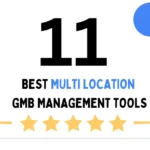Getting burnt by an Android app development company is easier than you think. Ask any business owner who’s been through a nightmare development project, and they’ll tell you the same thing—the contract was where it all went wrong.
Most people get excited about their app idea, find a development team, and rush through the paperwork. Then three months later, they’re stuck with half-finished code, blown budgets, and legal headaches that could have been avoided with better contract terms.
The thing is, app development isn’t like hiring someone to fix your website. Custom Android application development involves months of work, complex technical decisions, and a lot of money. Get the contract wrong, and you might end up owning nothing but a pile of useless code.
Why Most App Development Contracts Are Terrible
Here’s what usually happens: Business owners focus on price and delivery dates while ignoring everything else. The development company hands over a standard contract that heavily favors them, and everyone signs without reading the fine print.
Six months later, when the app is 80% done and the budget is blown, both sides start pointing fingers. The business owner wants changes that apparently weren’t in scope. The developers want more money for “unforeseen complications.” Nobody can agree on what was actually promised.
Custom Android application development projects fail more often than they succeed, and bad contracts are usually the culprit. The good news? Most of these problems are completely preventable if you know what to negotiate upfront.
The Contract Terms That Actually Matter
Who Really Owns Your App?
This might shock you, but many businesses don’t actually own their apps. They own a license to use them, which is completely different.
What you need to negotiate:
- Full ownership of all code, designs, and assets once you pay the final bill
- Complete source code handover (not just the app file you download from Google Play)
- Rights to hire other developers to modify or enhance your app later
- Clear ownership of any custom graphics, icons, or branding created for your project
Some Android app development companies try to keep partial ownership so they can license your code to other clients. Don’t let this happen unless they’re giving you a massive discount in exchange.
Project Scope (Or: How to Avoid Endless Change Fees)
Scope creep is the silent killer of app budgets. You start with a simple idea, then realise you need user login, push notifications, and payment processing, and suddenly your $15,000 project costs $45,000.
Protect yourself with specific scope details:
- Every single feature written out in plain English (not tech jargon)
- Exact number of screens and what each screen does
- Which Android versions and devices need to be supported
- What happens when you want to add or change features?
The best contracts include a formal change request process. Want to add a new feature? Fine, but it goes through a written approval process with clear cost implications.
Timeline Reality Check
Most development timelines are complete fiction. Developers underestimate to win projects, then blame delays on “unforeseen technical challenges” or client changes.
Smart timeline negotiations:
- Break payments into milestones tied to actual deliverables (not calendar dates)
- Include buffer time for testing and revisions
- Set penalty clauses for delays that aren’t your fault.
- Define what constitutes a “completed” milestone
Don’t accept vague promises like “8-10 weeks.” Demand specific milestone dates with concrete deliverables.
Quality Standards (Before Things Go Live)
Most Android app development companies consider an app “done” when it technically works. But there’s a huge difference between “works” and “works well on real devices with real users.”
Testing requirements to demand:
- Testing on at least 10 different Android devices and screen sizes
- Performance testing under heavy usage
- Security testing for data protection
- User interface testing by actual humans (not just developers)
Many developers skip proper testing to meet deadlines. Make testing a contractual requirement, not an optional nice-to-have.
The Post-Launch Reality
Your app launch date isn’t the end of your relationship with developers—it’s often just the beginning. Apps need updates, bug fixes, and adjustments based on user feedback.
Support terms that actually protect you:
- At least 90 days of free bug fixes after launch
- Maximum response times for different types of issues (24 hours for crashes, 48 hours for minor bugs)
- Clear policies on Android OS updates and compatibility
- Fixed pricing for future enhancements
Some companies offer “unlimited support,” which sounds great until you realise they define “support” very narrowly.
Payment Protection Strategies
Never pay large amounts upfront. This seems obvious, but you’d be amazed how many businesses pay 50% down and then lose leverage when problems arise.
Smarter payment approaches:
- Maximum 25% upfront payment
- Milestone-based payments tied to completed features
- Hold back 15-20% until you’ve tested everything thoroughly.
- Use escrow services for large projects
Money talks, and it’s your main leverage to ensure quality work.
Warning Signs in Development Contracts
Run away if you see these red flags:
- Vague deliverable descriptions: “Mobile app with standard features” means nothing.
- No warranty period: Quality developers stand behind their work.
- The developer keeps the source code: This locks you into their services forever.
- Unlimited revisions: Sounds good but usually means poor project planning
- No testing specifications: Recipe for a buggy, unusable app
Real-World Contract Negotiation
Here’s the thing about negotiating with Android app development companies—most expect some back-and-forth on contract terms. The initial contract they send is rarely their final offer.
Start by asking questions about anything unclear. Good developers will explain their reasoning and often adjust terms that seem unreasonable. Bad developers will refuse to negotiate or pressure you to sign quickly.
Get everything in writing, even if it seems minor. That casual conversation about adding a simple feature? It needs to be documented. Verbal promises disappear when disputes arise.
Consider hiring a lawyer for large projects. Yes, it costs money upfront, but it’s cheaper than fixing legal problems later.
Don’t Rush the Contract Process
The excitement of starting a new app project makes people rush through legal details. Take time to understand what you’re signing. Ask questions. Negotiate terms that protect your business.
Remember, the best custom Android application development projects happen when both sides have clear expectations and fair agreements. Companies that refuse reasonable contract negotiations often have good reasons to avoid accountability.
Finding Partners Who Get It Right
The contract negotiation process tells you a lot about potential development partners. Look for companies that welcome questions, explain their reasoning, and show genuine interest in protecting your success.
Established firms like Arobit Business Solutions understand that solid contracts benefit everyone involved. With their experience supervising 60+ real-time systems and handling over 100M daily sessions, they’ve learned that clear agreements prevent problems before they start. Their 200+ years of collective experience means they’ve seen what works and what doesn’t in Android app development company relationships.
When you’re evaluating potential partners, pay attention to how they handle contract discussions. Do they rush you through the paperwork, or do they take time to ensure you understand every provision? Their approach to contracts often predicts how they’ll handle your project.
The Bottom Line
A good contract won’t guarantee project success, but a bad contract almost guarantees problems. Take time to negotiate terms that protect your interests, work with developers who value transparency, and remember that the cheapest option is rarely the best value.
Your app represents a significant investment in your business’s future. Make sure your contract protects that investment properly.
YOU MAY ALSO LIKE: Mobile App Developers at Garage2Global: Turning Your Vision into Reality











